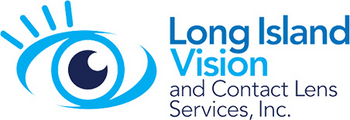.jpg?locale=en-US)
Traumatic Brain Injuries Can Harm the Visual System — And Self Esteem
Published:
A traumatic brain injury (TBI) can harm vital communication between the brain and the visual system, bringing on disabling symptoms. People trying to deal with these symptoms may experience depression, anxiety, and low self-esteem.
They may no longer be able to perform tasks as they once did. After a concussion or more severe TBI, one may experience recurring headaches that necessitate frequent breaks while working or studying, reducing productivity. Or chronic dizziness from a blow to the head could prevent a person from driving, making them dependent on others. A child who’s suffered a TBI may be unable to participate in group sports or activities, making them feel “alone” or “different.”
That’s where we come in. If you or a loved one has suffered even a mild TBI, speak with us about having your visual system assessed during a functional vision evaluation to determine if something can be done to ease your symptoms.
Signs of Emotional Distress Following a TBI
The struggle to read a book or catch a ball due to double vision or eye tracking problems can be demoralizing. A post-TBI patient could experience lowered self-esteem or depression. Be alert for these signs:
- Social withdrawal
- Persistent feelings of sadness
- Lack of interest in personal hygiene or appearance
- Negative self-talk
- Lack of motivation
- Being irritable or moody
- Reduced or lack of appetite
How a Neuro-Optometrist Can Help
It can be discouraging to hear from other health professionals that there’s nothing to be done for lingering TBI symptoms. Fortunately, neuro-optometrists can help post-TBI patients in ways that few other health care providers can.
Neuro-optometry deals with the visual system and how it impacts daily functioning. By training the brain to more effectively communicate and control the eyes, symptoms like dizziness, headache, and nausea can be significantly reduced or disappear altogether.
Eradicating these debilitating symptoms can be life-changing and allow you to go back to doing what you love. Children may once again be able to play with their friends on the soccer field or basketball court. Adults may become more interested in socializing and exercising, and become more productive at work. Resuming these activities can boost self-esteem and feelings of self-worth.
At Vision Therapy Center At Long Island Vision Care, we know all too well the challenges that accompany a traumatic brain injury and how it can affect self-esteem. To schedule a functional visual evaluation and determine if a problem with the visual system is contributing to your post-TBI symptoms, call Vision Therapy Center At Long Island Vision Care today.
Vision Therapy Center At Long Island Vision Care serves patients from Huntington, Lake Grove , Hicksville, Brentwood, and throughout Long Island.
REFERENCES
